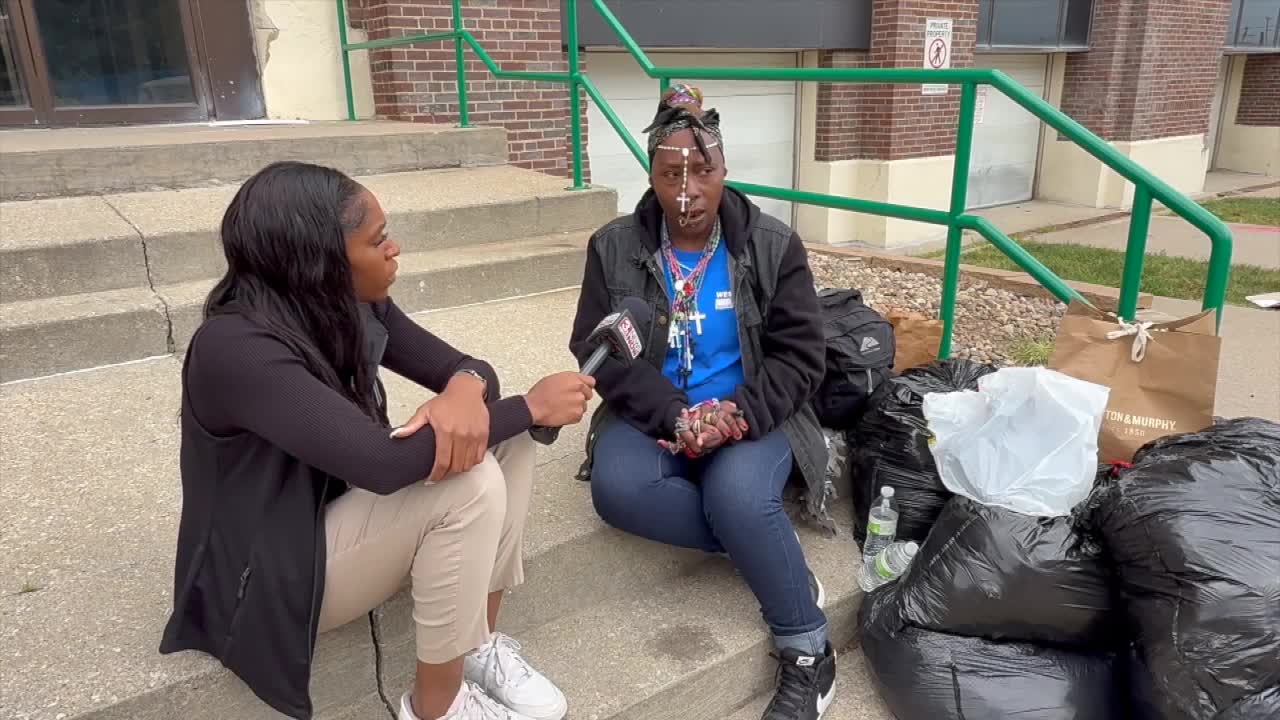- Councilman Brinker Harding introduced a measure that would fine people up to $300—or even lead to jail time—if they don’t move their encampment within 24 hours of notice. Harding frames it as a citywide public health and safety issue.
- Calvin Groc, who lives outside, argues the city should invest in vacant buildings and housing solutions instead of punishing people in poverty. In contrast, Donetta Mapp, who moves between motels, shelters, and parks, supports fines, saying they could promote responsibility and cleaner public spaces.
- The proposal will return for discussion on September 9. The debate reflects broader tensions over whether enforcement or expanded housing resources best address Omaha’s homelessness crisis.
BROADCAST TRANSCRIPT:
A new city ordinance could mean hefty fines—or even jail time—for people living in encampments on public property.
The proposal, introduced by Councilman Brinker Harding, would allow the city to fine individuals up to $300 if they do not move a campsite within 24 hours of being told to leave. If unpaid, the fine could result in jail time.
Calvin Groc, who spends most nights outside, said the measure doesn’t address the real issue—housing and resources.
“They got [the city] an abandoned building around the corner… they got a lot of vacant buildings… they could put more money into that, instead of taking money from people on the streets—so they can have somewhere to stay,” Groc told KMTV. Others see the ordinance differently.
Donetta Mapp, who rotates between motels, shelters, and parks, believes fines could push people toward more responsibility.
“They don’t want to work… those people should be fined because you’re not trying to do anything to change that,” Mapp said.“It would teach people to be responsible… they need structure.”
Harding, who is also running for Congress, defended the proposal, calling it both a citywide issue and a public health concern.
“I want to make sure we are addressing the issue—giving the opportunity for people in these situations to get shelter, but also making sure we’re cleaning up the issue,” Harding said. For Mapp, cleanliness was a key part of her support for the ordinance:
“Because you’re just polluting our area… your trashing like… this trash right here. Didn’t someone give you that food free and you didn’t have nothing to eat, but you took that trash and threw it on the ground,” she said.But Groc sees it as targeting people already struggling.
“I mean they have somewhere to go, they have big houses— why do they have to do the people out here like that… it’s wrong,” he said.
The ordinance will be back up for discussion at the Omaha City Council on September 9.
In North Downtown, I’m Melissa Wright.
This story was reported on-air by a journalist and has been converted to this platform with the assistance of AI. Our editorial team verifies all reporting on all platforms for fairness and accuracy.



